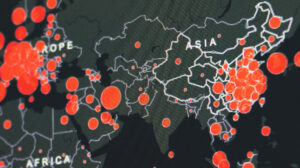On the 29th of March, Elon Musk introduced the new and improved latest Neuralink device implanted in the brain of a pig named Gertrude. The device indicated the connection of the pig’s snout to the brain function and can be connected to your smartphones. This is believed to be a breakthrough in the field of AI, which was termed by him as “AI Symbiosis.”
“LIKE A FITBIT IN YOUR SKULL.”
Such advancements are a constant feature for technologies like Machine Learning (ML), the Internet of Things (IoT), Artificial Intelligence (AI), Big Data, and hybrid cloud platforms. All these have transformed the digital space into a dynamic playing field.
Be it marketing, agriculture, healthcare, or accounting, every industry in the market is adopting these technologies into their work process. The essential processes like audit, customer management, and invoicing are being automated and optimized.
So, let’s dig deep into the two major players in achieving digital transformation – AI and hybrid cloud and their real-time applications into the digital world.
The Impact of AI
AI is an interactive technology that focuses on providing machines with human-like intelligence through a set of algorithms and predictive analysis. The prominence of AI has scaled to great heights over the years, and knowingly or not, all of us are constantly using AI-based products in our houses.
Take, for instance, Alexa or Siri, which have become an integral part of our lives. These devices are based on AI that function by observing your past choices and taking actions accordingly.
According to the Gartner CIO survey 2019, AI was chosen as the top technology for adoption, with 37 per cent of votes.
Let’s look at some of the areas in which AI is accelerating digital transformation.
Cybersecurity
Cybersecurity has been the most challenging task process for most CIOs around the world. According to Accenture, the average cost incurred by an organization due to cybercrimes skyrocketed to $13 Million In 2019.
“AI offers companies with advanced tools, enabling them to predict attacks before they occur. As per a report by Capgemini, by 2020, 63 per cent of organizations will deploy AI to strengthen their cybersecurity”
With the help of AI’s Machine Learning and Big Data, the network can be monitored round the clock, and any anomalies in the traffic patterns can be identified. Moreover, AI can also protect against phishing attacks by identifying unusual URLs and attachments. All this can be achieved without any human intervention. However, it is essential to note that while AI is helping organizations to counter cyberattacks, it is also a preferred tool of hackers.
Social Media
The exponential growth of social media has made it the largest community in the world where individuals can interact with others, share personal stuff, and gain knowledge from professionals around the world. Social media is also the largest potential market for businesses where they can showcase their products and services.
However, you must have realized whether it is Facebook, YouTube, or any other platform, there is always some recommended videos or products for you. This is all due to the integration of AI-based tools and big data—the combination of these help in storing, analyzing, and predicting user behaviour. Hence, based on your pat like or dislikes, AI recommends which videos you should watch or what products you should buy.
Chatbots
A chatbot is an AI-based interactive platform that helps customers get a resolution to their basic queries without any human intervention. It offers pre-defined answers to a series of questions based on past-user experiences and questions. Chatbots are believed to be the new cornerstone of customer engagement as they do not have to wait in queue for their answers.
Chatbots functions on AI-based algorithms that set a trajectory for the conversation with the customers based on the answers he chooses. Due to the AI’s machine learning, as more customers use the chatbot, it keeps on recording customer interactions and analyzing the action taken.
The Impact of Hybrid Cloud
Hybrid cloud is one of the most flexible cloud environments offering companies with an agile IT infrastructure. It a combination of private and public clouds, wherein different applications can be deployed on different cloud environments depending on the requirement.
A public cloud is a shared cloud environment that follows a multi-tenant approach. You can choose public cloud services from a third-party provider. Private cloud, on the other hand, can be an on-premise solution deployed by the organization, or you can choose it as a service from the provider.
One of the perks of the hybrid cloud is that you can eliminate the complexities and bottlenecks of both private and public cloud, and build a foolproof solution. The data between the private ad public cloud can be synchronized within a virtual private network or VPN gateway.
A hybrid cloud allows you to choose the applications and data to host on different cloud solutions. The public cloud is more affordable than the private cloud. However, the private cloud offers a dedicated environment and is more secure.
Hence, you can mix and match the applications according to their function. For instance, the critical data can be hosted in the private cloud, whereas the applications that are used occasionally can be hosted on the public cloud (because it deploys a pay-as-you-go pricing model).
Application of Hybrid Cloud
One of the noteworthy applications of the hybrid cloud that is transforming the digital workspace is in the field of application development. The applications built these days need a flexible IT infrastructure that can be modified with the development requirements. This type of flexibility is not possible in traditional IT infra.
As a hybrid cloud is highly scalable, it can adapt almost instantly with the resource requirements of the latest application releases.
Wrapping Up
Digital transformation is a perpetual process that has been going on for decades. However, with new-age tools based on AI, machine learning, and big data, the digital transformation has accelerated rapidly. To optimize the capabilities of these tools, agile platforms like the hybrid cloud have evolved, giving them the necessary processing power and resources.
With a tech-savvy culture and constant advancements in the field of technology, the digital world is expected to see unprecedented growth in the coming years.
— Sharad Acharya is a technical content writer at Ace Cloud Hosting, a renowned accounting, and business application hosting provider.










